Now that Alex is nearing 4 years old and Luc is nearing 2, I’m starting to be more intentional with how we spend some of our time together. While they spend their days playing, I want to highlight more “teachable moments” that challenge the boys to learn new skills, whether it’s physical, practical, and/or academic. And since we blog about what we love and what’s important to us, I’m hoping to share some of these pre-school teaching adventures on the blog.
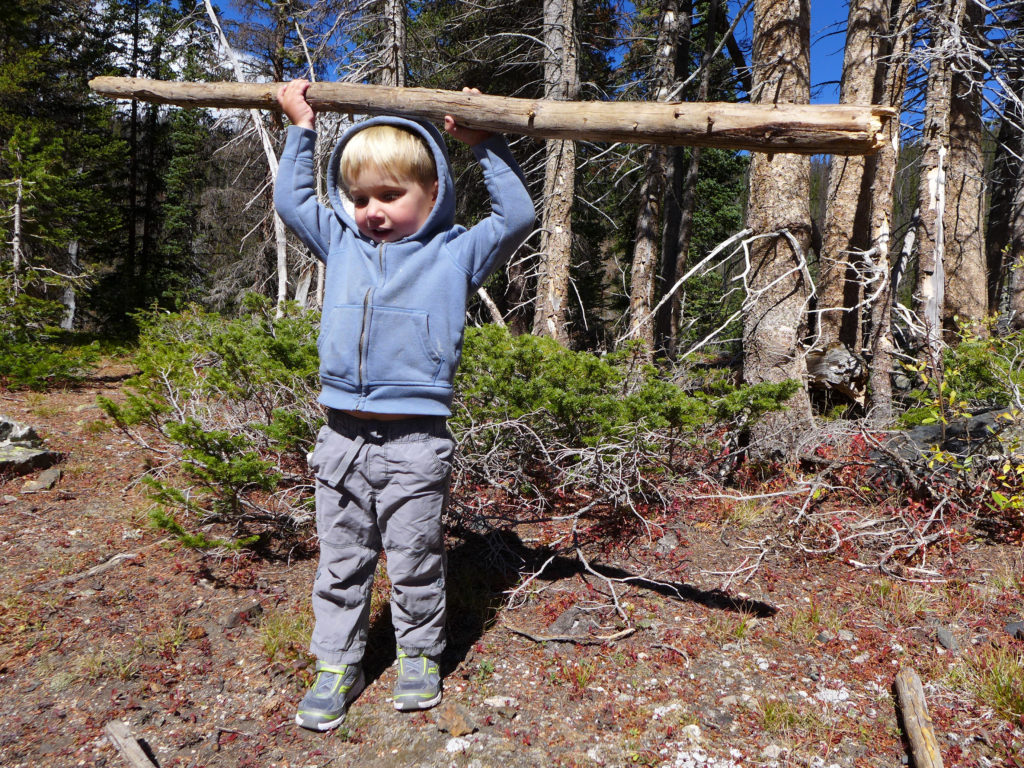
We’ve already started some of this work and sharing through the Cooking with Kids series, but I’d like to expand the posts to share some of the work we’re doing outside of the kitchen.
Our Learning Philosophy
If you’ve been reading our blog for a while, it’s no surprise that Sarah and I enjoy challenging ourselves to learn new things, and (of course), we love to share what we’ve learned with others. Much of what we do here on the blog is from the perspective of an amateur in that we’ve had no formal schooling in cooking, crafting, or potion-making, yet other things we do from the perspective of professionals (Sarah as a photographer and yogi, myself as a scientist, naturalist, and quasi-economist). Beyond spending years as a student, I’ve also worked as an educator in one capacity or another (volunteering to work with high school kids in urban gardens, being a teaching assistant in grad school, and teaching college courses). All that’s to say that we have many passions, some we’ve pursued through formal education and others we’ve pursued as hobbies.
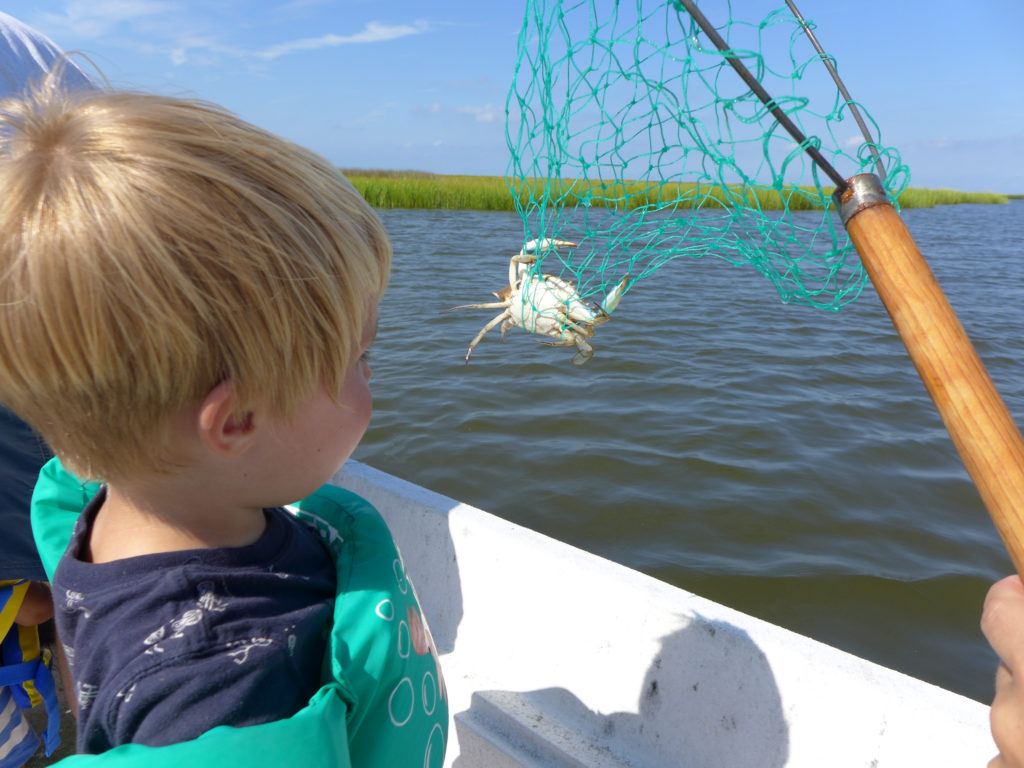
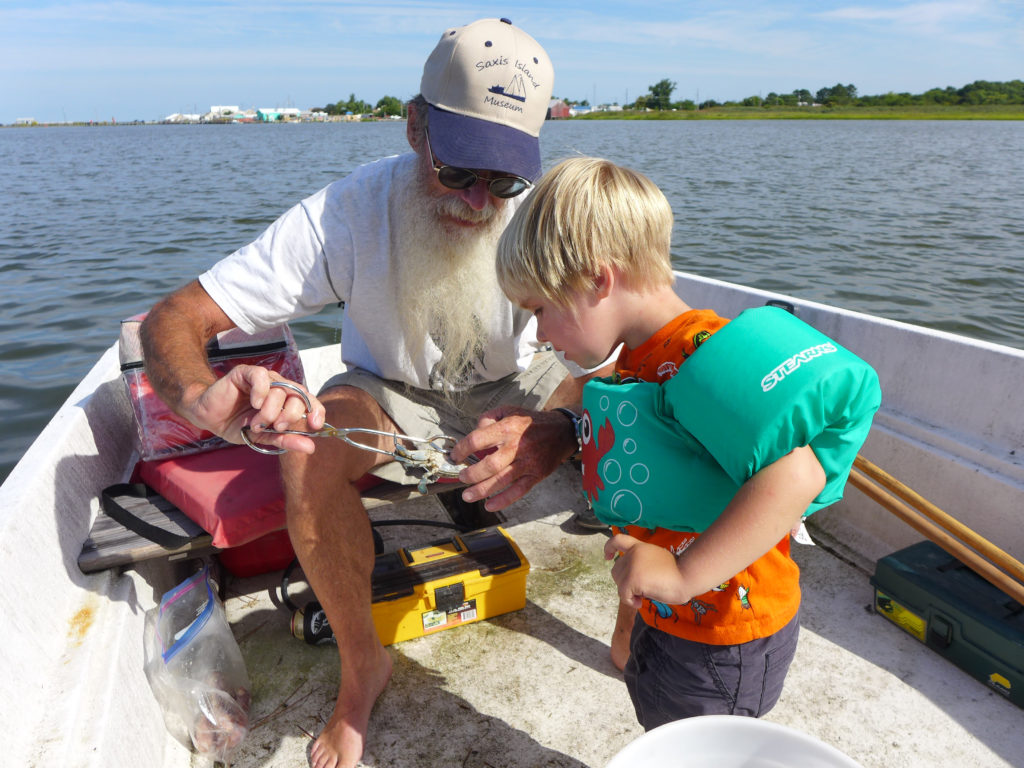
As you may expect, we’re keen to pass our love of learning on to the boys. The most important skills that I hope to nurture in them are to be observant of the world around them, ask questions about how the world works, and come up with ideas that try to answer those questions. I’m hoping to raise curious problem solvers. Of course, I’m also hoping to raise kiddos with a social conscious, but aren’t we all? I hope?
What are Teachable Moments?
While they’re still young, I’m not concerned about enrolling the kiddos in a rigorous academic environment, rather, I think it’s fairly easy to engage them in teachable moments no matter what we’re doing from one day to the next. For example, Alex is starting to identify letters of the alphabet and spell simple words. He doesn’t need worksheets to help with this, instead, we’re always finding moments to have him find letters (road signs, cereal boxes, books, etc.). And Luc’s learning is much more basic – he’s learning to form sentences, ask questions, and (of course) he tries to copy anything his big brother does from counting to jumping off the furniture. So we spend a lot of time talking to/with Luc (not at him) to help his language develop. I ask him questions, give him time to answer. Before he was even speaking in sentences, I would really listen when he was making noises at me, because often he had something he was trying to communicate.
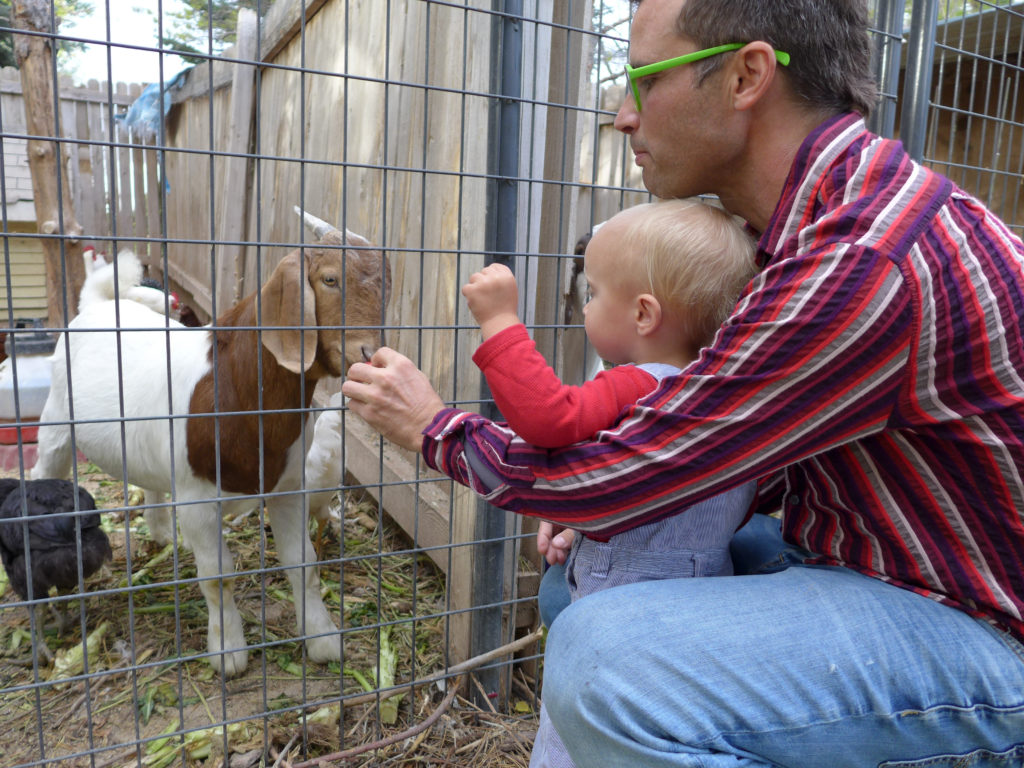
Whatever the subject manner, there’s often a way to relate to it in our day-to-day lives. For example, Calder and I were total dorks when we bought the NPS pass and talked about the utility we get just from knowing that we could go to any park at any time… and when I’m hiking in the mountains, a rock slide makes me want to talk about entropy – the idea that things gradually go from an ordered to disordered state. The bottom line is that there are so many moments in the day where we could stop, observe, and start an academic conversation about a whole slew of topics.
But those are big ideas. At the boys’ age, I like to follow their curiosity. Some days we’re using blocks to see who can build the highest tower, and why does one stay up while another falls? Other days we’re sitting outside for hours looking for bugs, watching where they go and what they do. And other days, we’re mixing food coloring into homemade gak to see what happens when we mix red with blue (purple!), but what if we add yellow and green too (brown!)?
Teaching Resources
Right now, given the boys’ ages, our conversations and teachable moments are really pretty mellow, but they’re there, and more are happening every day – especially with Alex.
I’ve started to look for some resources that I can refer to as I think about fostering a creative, problem-solving, independent environment in (and outside!) our house.
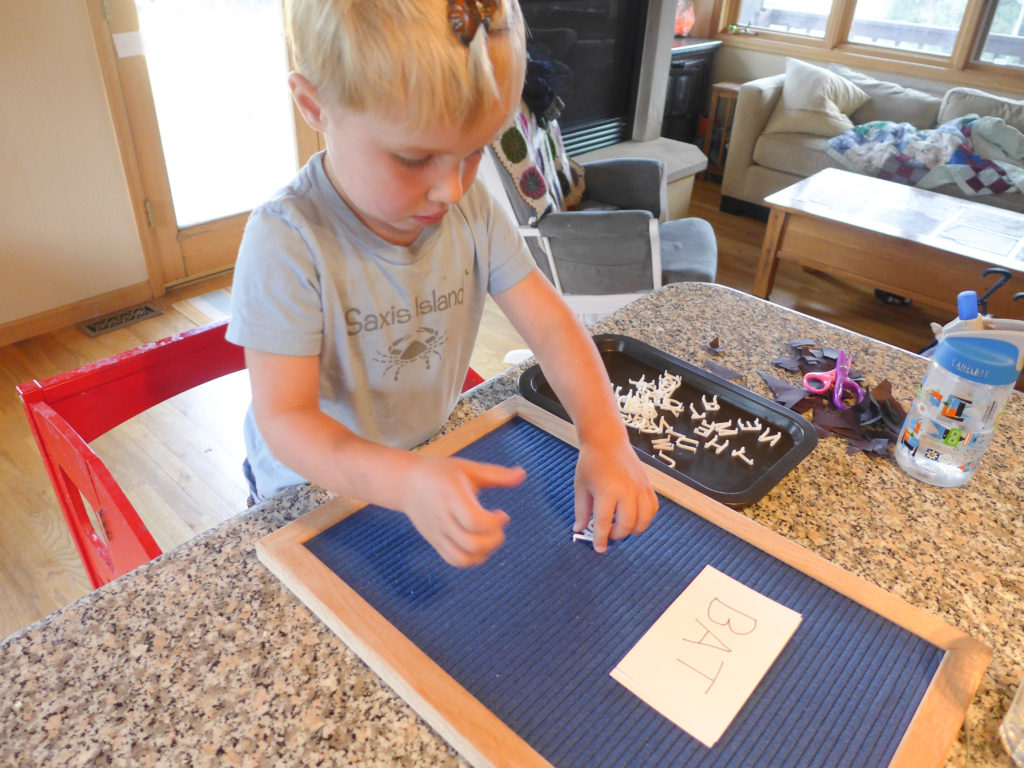
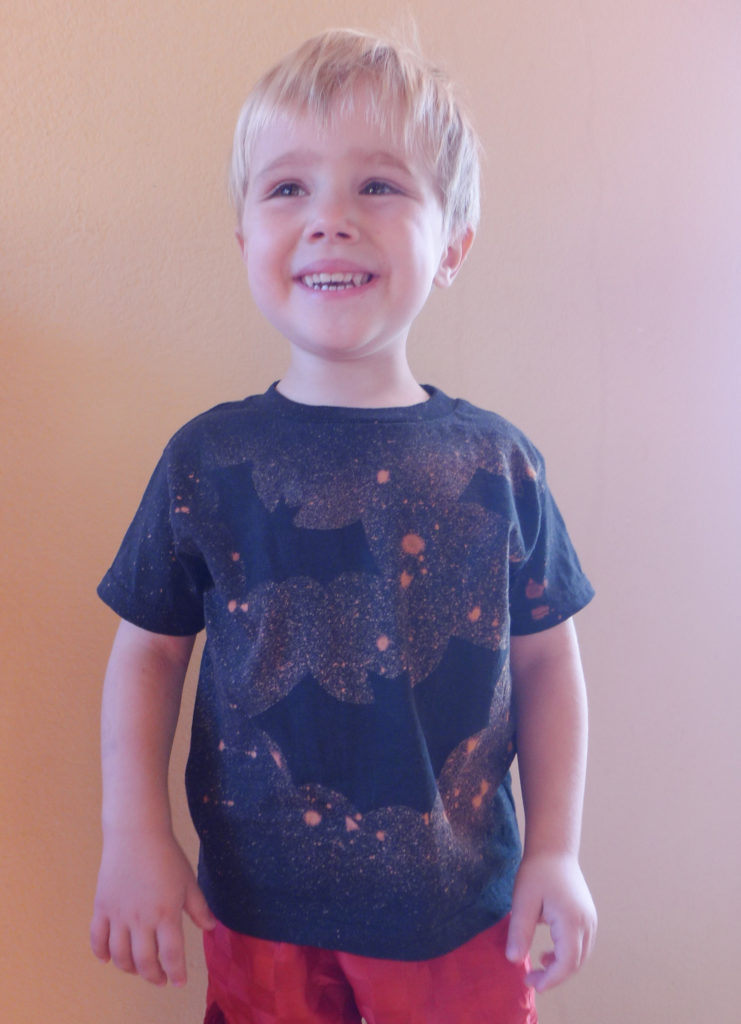
For the most part, I’ve been leaning on my intuition and ideas from our mom who is a retired teacher, but I’ve also begun to turn to a couple of books:
- Tinkerlab is a great resource for helping parents to foster a more creative and exploratory learning environment at home. It begins with a few sections discussing the importance of letting kids tinker, how to organize your home, and lists of suggested tinkering supplies for kids. Then the bulk of the book provides ideas for tinkering activities, organized broadly under the topics of “design, build, concoct, and discover”. There’s also a Tinkerlab website bursting with ideas and inspiring posts.
- The Outdoor Classroom in Practice, Ages 3-7 is a great basic resource if you would like to have some practical help for creating a forest school environment. Admittedly, we aren’t spending our full days outside, but it is a major goal of mine to have a lot of the boys learning and activities taking place outside. This is a month-by-month guide with ideas for introducing children to the idea of a forest school and with a few simple seasonally-appropriate activities for each month.
- The Kids’ Nature Book This book is out of print, but Sarah picked up a copy for us at a used book store. There are other versions of nature activity books available, but I really love this one. It gives you an activity idea for every day of the year – that’s 365 ideas! Some are super simple (measure the snowfall), while others are more intensive. The bottom line is that you can find an activity that’s appropriate for any moment and age level. I’ll come back to this book in a future post and talk in more detail about how I use it.
In addition to those books, as we all know, the internet is full of ideas, and I have a few Pinterest boards to help me keep those resources organized.
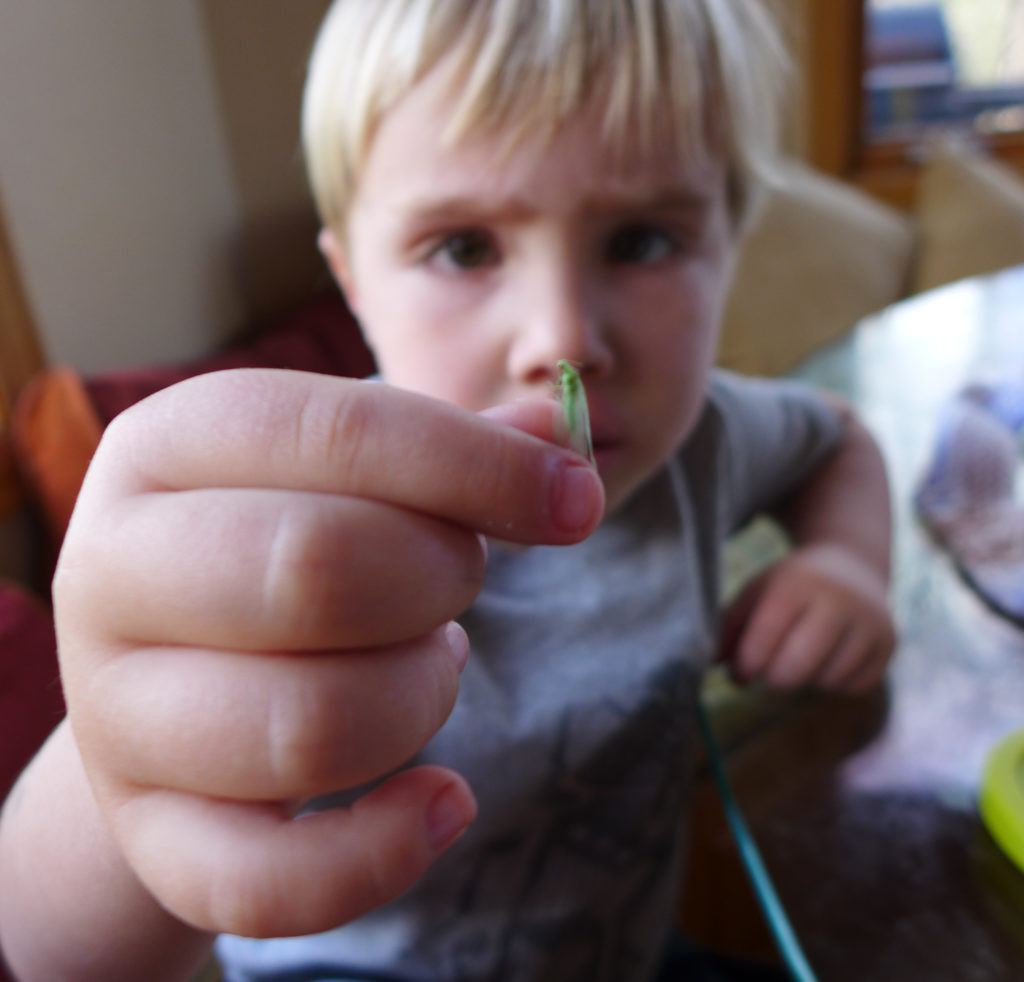
I’m exciting to start this series on the blog, and am thinking about a variety of future posts covering everything from how we create teachable moments while on vacation to our early experiments with learning letters. I know these posts won’t be for everyone, but I’m hoping that there’s a community of readers who would like to join in this discussion and share their teachable moments.



